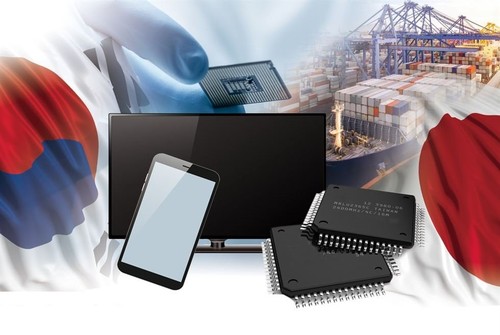 (illustrative photo) (illustrative photo) |
Tension between Japan and South Korea started this month when Japan announced it would limit certain high-tech material exports to South Korea.
The decision was made following a disagreement over compensation for forced labor during Japan’s occupation of the Korean peninsula during World War II. Last year South Korea’s Supreme Court ruled that South Koreans were forced to work for Japanese occupiers. The court ordered Japan’s Nippon Steel & Sumitomo and Mitsubishi Heavy Industries to compensate South Korean survivors. Japan strongly rejected the ruling.
No sign of concession
Recent talks between Japan and South Korea have gained no positive results, except more accusations. Seoul said Tokyo should remove export limits on high-tech products and rejected claims that Japan informed South Korea before imposing the restrictions. Meanwhile, Tokyo said it has received no request from South Korea regarding withdrawing export control decisions.
Earlier this month, Japan announced it would tighten export controls of three chemicals used in the production of smartphones, television screens and semiconductors. While South Korea imports 94% of the chemicals from Japan, the tighter export restrictions could hit tech giants, such as Samsung Electronics Co Ltd, SK Hynix Inc, and LG Electronics. South Korean President Moon Jae-in said Japan's measures to harm South Korea’s economy are politically motivated.
South Korea will retaliate, Moon said. Supermarkets in Seoul said they will not buy and sell Japanese products. A wave to boycott Japanese products is spreading on South Korea’s social media.
Seoul said Tokyo wants to hamper South Korea’s tech giants in opposition to Seoul’s ruling on compensation for forced labor in the wartime. But Tokyo said the issue has been agreed to in the 1965 treaty that normalized diplomatic relations between Japan and South Korea. Under the US-mediated treaty, South Korea received a package of 300 million USD in economic aid, equivalent to 2.4 billion USD at present, from Japan in exchange for Seoul considering all pre-treaty compensation issues settled. But President Moon said the treaty does not ban civilians from suing Japanese companies.
Threatening global technology
Experts say diplomatic tensions, which have lead to economic retaliation, would cause regrettable results to both national and global economies. Japan’s tighter export restrictions on crucial materials for smartphone displays and microchips would affect global production. Japan produces from 70% to 90% of the three chemicals in the world and it is difficult for South Korean companies to find alternative supply. The Federation of Korean Industries on Monday called on Japan to withdraw its decision to avoid risks to the global chain. The World Trade Organization is scheduled to discuss the matter next week.